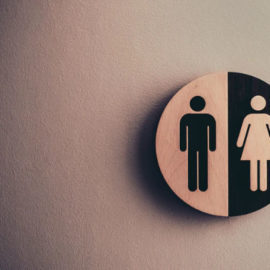

This article gives you a glimpse of what you can learn with Shortform. Shortform has the world’s best guides to 1000+ nonfiction books, plus other resources to help you accelerate your learning.
Want to learn faster and get smarter? Sign up for a free trial here .
Is technology helping or hurting us? What are the best books about technology that help us answer this question?
Technology is all around us, whether we like it or not. It charges our phones, cooks our meals, and diagnoses medical problems. On the other hand, it also distracts us from work and affects our privacy.
Below is a list of some of the best books about technology, organized into two categories: books that cheer on the advancements and those that warn about the dangers.
Books in Favor of Technology’s Advancements
Technology has helped us advance significantly as humans. Every day, more and more companies are using technology to create groundbreaking products that will serve us in the future. Take a look at more benefits with these best books about technology.
David Sinclair is a professor of genetics and co-director of the Paul F. Glenn Center for Biology of Aging Research at Harvard University. He argues that it’s not only possible—but inevitable—that we’ll learn to overcome the aging process. New medicines and technologies will increase our maximum lifespan and years of health until eventually, humans won’t have a maximum lifespan—we’ll stay young and healthy forever. In Lifespan: Why We Age and Why We Don’t Have To, Sinclair discusses why aging happens, how we can prevent it, and how we might create a world where nobody has to die of old age.
Humans and computers face many of the same problems: We both have a never-ending stream of things we want to do and a limited amount of time and energy to do them. Is it possible that the age-old question of how best to live has already been solved by computer engineers? In Algorithms to Live By, science writer Brian Christian and Berkeley psychologist Tom Griffiths team up to prove that computer science is a fount of unconventional wisdom with practical value in many areas of human life.
In today’s modern age, we get overwhelmed and frustrated because we have access to more information than our brains can possibly store. Consequently, we feel like we’re failing to reach our full potential—we forget important information, waste time trying to recall old knowledge, or record important notes but lose track of their location. In Building a Second Brain, Tiago Forte presents a solution to these problems—a straightforward method of recording, organizing, and utilizing valuable information so you can easily recall it and accomplish goals to the best of your ability. Forte recommends storing valuable information in a digital storage center that he calls a “Second Brain.”
In the modern era, we no longer rely on prayer to cope with serious problems—we’ve mostly overcome famine, plague, and war through the development of technology and medical knowledge. In Homo Deus, Yuval Noah Harari, a professor at the Hebrew University in Jerusalem, envisions a future in which technology replaces humanist ideals and liberal government. Dissecting the concepts of religion, immortality, and technology, Harari argues that the world of the future may be run by advanced algorithms and artificial intelligence, not human beings.
Hailed as this one of this generation’s most innovative entrepreneurs, Elon Musk has built several industry-disrupting technology businesses, and he’s known for shooting for the moon—or more literally, Mars. Technology journalist Ashlee Vance spent almost 50 hours interviewing Musk and talked to around 300 people close to him to produce this biography, which presents new insights into Musk’s life and businesses.
From the first home computers to the smartphone revolution, Steve Jobs was a guiding force in the worldwide electronics industry. His innovations, his obsessions, and even his shortcomings impacted the way we use computers today. To understand Jobs’s life is to understand why the modern information landscape functions the way it does. Walter Isaacson’s biography is considered to be the definitive work on Steve Jobs’s life. He was given full access to Jobs and those who knew him with no limitations on what he might uncover. The result is an intimate portrait of a man who was thoughtful and callous, insightful and blind, and whose passions left a mark on the world.
Books Warning About Technology Going Too Far
While some believe our future is safe in technology’s hands, many people would say otherwise. There’s concern that phones, television, and more have created a toxic environment that is distracting and invasive. Check out these best books about technology if you want to learn more.
In Amusing Ourselves to Death, Neil Postman argued presciently 35 years ago that television was reshaping our culture and trivializing public life—news, politics, religion, education, and business—by turning it into entertainment. He warned that we would become so inundated with irrelevant information that we’d lose sight of what was important—even worse, we wouldn’t care as long as we felt entertained. With the proliferation of digital media today and worries about excessive “screen time,” his analysis still resonates.
In 2013, whistleblower Edward Snowden revealed the existence of STELLARWIND, the US government’s mass surveillance program. Until Snowden revealed the program, the US government was recording the phone and computer activities of nearly everyone in the world. In Permanent Record, Snowden explains how he became involved with the government, how he learned about the mass surveillance program, and how he ultimately made the decision to speak up.
Has Big Tech made our lives better or worse? In The Four, entrepreneur and marketing professor Scott Galloway takes a hard look at four technology companies that dominate the modern marketplace: Amazon, Apple, Facebook, and Google (the “Four”). He argues that the success of the Four has had a profound and decidedly negative impact on our society, affecting everything from our privacy and our opportunities for career advancement to our free-market economy and even the functioning of our democracy.
It’s impossible to imagine a modern workplace without email, right? Computer science professor and productivity expert Cal Newport imagines—and advocates—for it. In A World Without Email, Newport argues that email, and the relentless requests and distractions it introduces, makes knowledge workers less productive and more unhappy. Rather than dedicating focused time to the work they were hired to do, knowledge workers spend most of their days responding to and checking for unexpected requests which, because they’re part of a team, they feel pressured to fulfill immediately.
The Age of Surveillance Capitalism
Are you aware that you’re being watched by big tech companies? In The Age of Surveillance Capitalism, Shoshana Zuboff explores the concept and consequences of “surveillance capitalism”—a term she created to describe the invasive and controlling data collection practices that tech companies like Google, Microsoft, and Facebook have adopted to maximize their profits. The Age of Surveillance Capitalism explores what surveillance capitalism is, how it’s been able to thrive despite growing opposition, and what we can do to prevent it from destroying our freedom and democracy.
Many of us are glued to our smartphones, tablets, and laptops, to the point that we’ve lost control of how we spend our time and attention. Meanwhile, tech companies continue to invest major resources into making their products and services addictive so that we’ll continue scrolling and tapping. Digital Minimalism explains how you can transform your tech habits by adopting digital minimalism, which aims to maximize the benefits of technology and avoid the pitfalls by identifying your values and determining how to use technology to support them.
21 Lessons for the 21st Century
The 21st century will bring changes and challenges unlike any humans have encountered before. Globalism and technological innovations are changing the structures of societies worldwide—and the changes are happening quickly. If people don’t face these challenges and help shape the future, the world could have a class of obsolete workers whose jobs have been automated and people could lose their ability to make their own decisions. In 21 Lessons for the 21st Century, Yuval Noah Harari highlights the biggest challenges in the modern world, and he offers advice on making sense of and navigating such transitional times.
In today’s tech-dependent, app-centered, notification-ruled world, it’s easier than ever to get distracted from what’s really important—your values, your relationships, and your work. In Indistractable, Nir Eyal develops a four-part model for gaining the modern-day superpower of “indistractability.” You’ll learn how your distractions start internally, why your schedule should be based on your values instead of tasks, how to diminish the power of external triggers in your life, and how to commit to yourself.
Final Words
The best books about technology will give you diverse takes on technology’s role in society. Now you’re educated enough to form your own opinion on the technological advancements shaping our world.
Which of these best books about technology will you read first? Let us know in the comments below!

Want to fast-track your learning? With Shortform, you’ll gain insights you won't find anywhere else .
Here's what you’ll get when you sign up for Shortform :
- Complicated ideas explained in simple and concise ways
- Smart analysis that connects what you’re reading to other key concepts
- Writing with zero fluff because we know how important your time is






